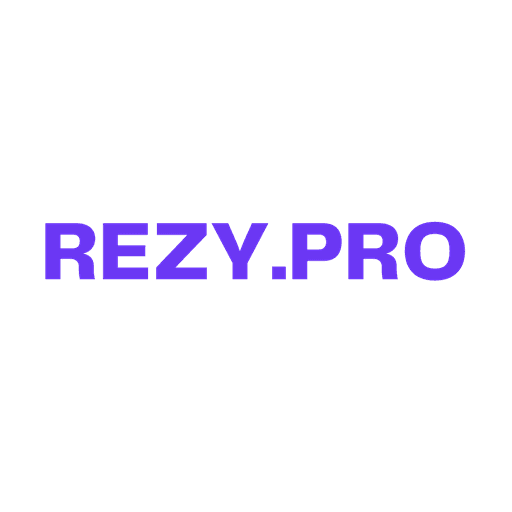In today’s fast-paced and competitive job market, talent acquisition is more crucial than ever for organizations seeking to attract and retain top talent. Traditional recruitment processes, however, often struggle to keep up with the volume of applications, leading to inefficiencies, missed opportunities, and human biases that can impact hiring decisions. Enter Artificial Intelligence (AI)—a transformative tool that is revolutionizing the recruitment landscape by automating the screening process, enhancing decision-making, and ultimately driving better hiring outcomes.
The Challenge of Traditional Recruitment
Recruitment has traditionally been a labor-intensive and time-consuming process. HR professionals sift through mountains of resumes, conduct multiple rounds of interviews, and manage a myriad of administrative tasks. Despite their best efforts, the sheer volume of applications can lead to oversights and unconscious biases, which can result in the loss of potentially great candidates.
Moreover, as organizations grow, the need for a more streamlined and efficient recruitment process becomes apparent. This is where AI steps in, offering solutions that not only speed up the hiring process but also enhance the quality of hires.
How AI Automates the Screening Process
One of the most significant ways AI is transforming recruitment is through the automation of the resume screening process. Here’s how AI makes it possible:
Resume Parsing:
AI-powered tools can quickly parse and analyze resumes, extracting relevant information such as skills, experience, and qualifications. This allows for a more structured and consistent evaluation of candidates, reducing the likelihood of overlooking critical details.
Candidate Matching:
AI systems use advanced algorithms to match candidates’ qualifications and experiences with the job requirements. This automated matching process ensures that only the most suitable candidates are shortlisted, saving HR professionals valuable time and effort.
Bias Reduction:
One of the most significant advantages of AI in recruitment is its potential to reduce human biases. By focusing solely on objective data, AI can help eliminate unconscious biases related to gender, ethnicity, age, or education, leading to a more diverse and inclusive hiring process.
Automated Screening Questions:
AI can also conduct initial screenings through automated questionnaires or chatbots. These tools can assess candidates’ suitability by asking job-specific questions and evaluating their responses in real-time, further refining the pool of applicants.
Predictive Analytics:
AI can analyze historical data to predict which candidates are most likely to succeed in a given role. By evaluating past hires’ performance and retention rates, AI can provide insights into which traits and qualifications are most correlated with success, allowing for more informed hiring decisions.
The Benefits of AI-Driven Screening
The automation of the screening process through AI offers numerous benefits that go beyond just saving time:
Efficiency and Speed:
AI-powered tools can process thousands of resumes in a fraction of the time it would take a human recruiter. This speed allows companies to respond quickly to promising candidates, reducing the time-to-hire and ensuring they don’t lose out to competitors.
Improved Candidate Experience:
AI can enhance the candidate experience by providing faster feedback and more transparent communication. For example, candidates can receive immediate acknowledgment of their application, along with updates on their status throughout the recruitment process.
Higher Quality of Hires:
By automating the initial screening process, AI ensures that only the most qualified candidates are presented to HR professionals for further evaluation. This leads to better hiring decisions and higher-quality hires, as recruiters can focus their efforts on the most promising candidates.
Scalability:
AI enables organizations to scale their recruitment efforts easily. Whether hiring for a handful of positions or thousands, AI can handle the increased workload without compromising the quality of the screening process.
Data-Driven Insights:
AI provides valuable data-driven insights that can inform future recruitment strategies. By analyzing patterns and trends in the hiring process, organizations can continuously optimize their approach, leading to more effective and efficient recruitment efforts.
Challenges and Considerations
While AI offers significant advantages in talent acquisition, it’s essential to approach its implementation thoughtfully. Here are some challenges and considerations:
Data Quality:
AI systems rely heavily on data to function effectively. Poor-quality data can lead to inaccurate results and potentially harm the recruitment process. Organizations must ensure that the data fed into AI systems is accurate, up-to-date, and representative.
Ethical Concerns:
Although AI can reduce bias, it’s not entirely immune to it. If the algorithms are trained on biased data, they may perpetuate those biases in the screening process. Therefore, it’s crucial to continuously monitor and refine AI systems to ensure fairness and ethical use.
Human Touch:
While AI can automate many aspects of the recruitment process, it cannot replace the human touch entirely. Building relationships with candidates, assessing cultural fit, and making final hiring decisions are areas where human judgment remains essential.
Cost and Implementation:
Implementing AI solutions requires an initial investment in technology and training. Organizations need to weigh the costs against the benefits to determine whether AI is a viable option for their recruitment needs.
The Future of AI in Recruitment
As AI technology continues to evolve, its role in talent acquisition is likely to expand. Future developments may include more sophisticated AI tools capable of assessing candidates’ soft skills, cultural fit, and long-term potential within the organization. Additionally, AI could play a more significant role in enhancing diversity and inclusion by identifying and addressing biases throughout the recruitment process.
Ultimately, AI is poised to become an indispensable tool in the HR toolkit, enabling organizations to make smarter, faster, and more informed hiring decisions. By embracing AI in talent acquisition, companies can not only improve their recruitment outcomes but also gain a competitive edge in the increasingly dynamic job market.



